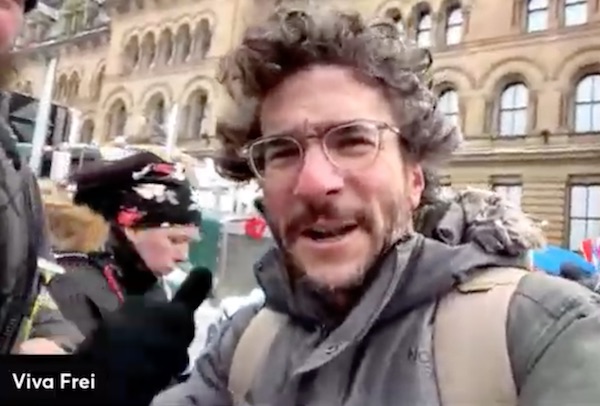Brownstone Institute
The WHO, the UN, and the Reality of Human Greed
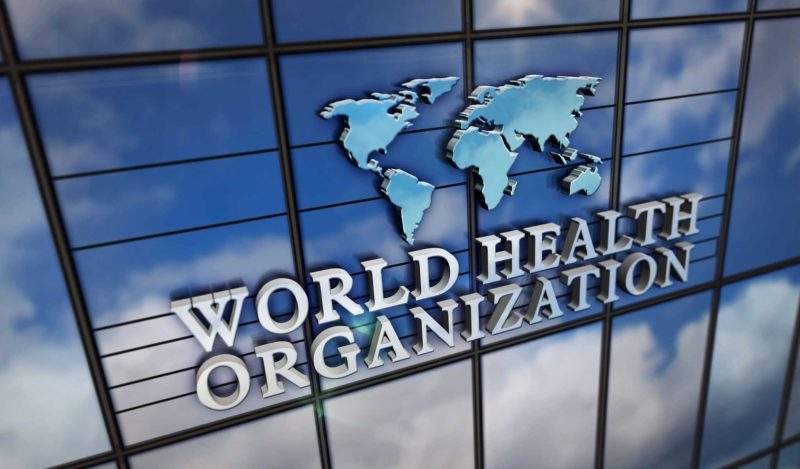
From the Brownstone Institute
BY
The World Health Organization (WHO) is not plotting to take over the world. We need to remember what it is; an organization of fairly ordinary people, not especially experts in their field, who have landed jobs and benefits that most of us would envy. Not intrinsically nefarious, the organization is just being obedient to those who fund it and who define how those funds must be used. This is necessary if its staff are to keep their jobs.
The WHO is, however, promoting a new treaty being discussed by its governing body, the World Health Assembly (WHA), aimed at centralizing its control over health emergencies. The WHA is also amending the International Health Regulations (IHR), which have force under international law, to give the WHO power to demand lockdowns, mandate vaccines for you and your family, and prevent you from travelling.
‘Health emergencies,’ in this context, are any potential risk that the Director-General determines might cause a significant problem to health. This could be a viral variant somewhere, an outbreak of information that he/she disagrees with, or even changing weather. The current DG has already insisted that all of these are major and growing threats. He even declared a Public Health Emergency of International Concern after 5 people in the world died of monkeypox.
The rest of the United Nations (UN), in its current desperation over impending climate Armageddon, is much the same as the WHO. As temperatures reach giddy heights that were useful for growing meat and barley in Medieval Greenland, most of its staff don’t really believe we are on the cusp of extinction. They are just ordinary people paid to say these things, and concerned about job security and promotion if they don’t.
People whose wealth has made them very powerful see great gain in having the WHO and the UN act in this way. These people have also invested heavily in the media and politics to ensure broad support. Staff of the WHO and the UN who fight this from within are hardly going to enhance their career prospects. There is also just enough of a grain of truth in the stories (viruses do kill people and CO2 is rising while the climate is changing) to self-justify the overall harm they know they are doing.
The advantages of organizational capture
In reality, large organizations work for those who fund them. Most of their staff just do what they are told and accept their paychecks. A few courageous ones tend to leave or get pushed, many who lack the courage of their convictions hide behind the organization hoping that others will step up first, and some are a bit clueless and cannot really figure out what is going on. An unfortunate few genuinely feel trapped into submission due to difficult personal circumstances.
When the ethos of funding the WHO and the wider UN was about helping the world’s populations to improve their lot, this is what the staff generally advocated for and worked to implement. Now that they are guided by the very wealthy and by multinational corporations that have investors to please, they advocate and work for the benefit of these new masters with the same enthusiasm. This is why such organizations are so useful to those who wish to expand personal power.
In discussing how a relative few can influence or run these powerful international organizations, it is easy to think it is all unbelievable or conspiracist, if you don’t pause and really apply your brain. How could so few take over the whole world? If someone has as much money as whole countries, but does not have a country to look after, they really do have quite a lot of scope. Applying some of this money strategically to specific institutions that then serve as tools to influence the rest is achievable. Their staff will be grateful for this apparent largesse.
Institutional capture of this type is achievable when we relax rules on taxation and conflict of interest. allowing certain individuals and corporations to gain vast financial leverage and to openly apply it. If we then allow them to form public-private partnerships, their aims can be further subsidized with our money. If we allow our politicians to treat politics as a lifetime career, they will soon realize that rather than pleasing the populace it is more effective to cozy up with these people who can fund their career.
They can do this behind closed doors at resorts like Davos, while the corporate media distracts us by fawning over a teenager on the main stage raging against the machine. The result is inevitable, because the politicians need money and positive media coverage, and the cartels of the wealthy need more amicable laws.
International public health is now a stunning example of such corporate capture. The same entities fund the training colleges, research groups where the students will seek jobs, modelling that will define their priorities, agencies where they will implement their learning, journals they will read, and the mass media that will assure them it is all for the best. The media will also publicly vilify those who step out of line. The climate issue is not terribly different if you dig a bit. Those who comply will have assured careers, and those who don’t will not. Such industries will then shift to policies, and study results, that benefit the sponsors.
Try to think of a rich person who genuinely lost interest in becoming wealthier. There are a few saints in history, but greed is a powerful force that is seldom assuaged by accumulation of the stuff that greed seeks. There is nothing new under the sun, not greed and not those who try to pretend that the fruit of greed is something good.
The opportunities of feudalism
To achieve success in accumulating more power and wealth, you would have to, by definition, take sovereignty and wealth from others. Most people don’t like having this taken away from them. Power in a true democracy is granted by the people, not taken, and only held on the consent of those who granted it. Few ordinary people want to give up their wealth to someone already wealthier than them – they may consider transferring it in taxes in order to gain mutual benefit, but not giving it to another to use as the receiver pleases. To succeed in accumulating power and wealth it is therefore often necessary to take it by force or by deceit. Deceit (lying) is usually the least risky alternative.
Lies and deceit don’t work on everyone, but they work on many. As the enemy of deceit is truth, and the enemy of tyranny is equality (i.e., individual sovereignty or bodily autonomy), people who insist on truth and individual rights must be suppressed by those who wish to accumulate power. The most effective way is to silence them, and to reassure the majority who have fallen for the deceit that these nonconformists are the enemy (remember “Pandemic of the unvaccinated”).
Denigration and scapegoating, using terms such as “anti-X,” “Y-denier,” or “so-called Z,” make the non-complying minority look negative and inferior. The majority can then safely ignore them, and even feel superior in doing so.
If the mass media can be brought on board, it becomes almost impossible for non-compliers to clear their name and get their message across. The largest funders of media are now pharmaceutical companies. They are also large funders of politicians. The largest owners of media are BlackRock and Vanguard (who are coincidentally also the largest shareholders of several pharmaceutical companies). So, imagine how profitable it would be if these investment houses, directly and through lackey organizations such as the World Economic Forum, WHO or the UN, thought of using such assets to provide maximum profit (as, indeed, in an amoral business environment, they are supposed to do).
If a relatively new virus came along in such a scenario, all that would be needed is to apply those media and political assets to sow fear and confine people, then offer them a pharmaceutical way out of their confinement. Such a scheme would virtually print money for their investors. This pharmaceutical escape could even be made to look like a saving grace, rather than a scheme born of, and run through, greed.
Facing reality
A short glance at reality indicates that we do seem to be going through such a scenario. We have got society into a total mess by dropping the basic rules that kept greed at bay, then let greed run rampant and called it “progress.” Fear and impoverishment are symptoms.
The WHO, the UN, and the mass media are tools. Soon other tools will impose Central Bank Digital Currencies and generously provide a Universal Basic Income (an allowance, as is given to a child) to relieve the impoverishment. This programmable currency will be spent on what the financiers decide, and withdrawn on their whim, such as on any sign of disloyalty. It is exactly what slavery is, except a whip, or even the current approach of media sponsorship, will no longer be required to keep people in line.
To fix this, it will be necessary to take the tools away from those who are misusing them, whether the tools are the WHO, UN or whatever. If your really useful hammer is going to be used by an intruder to break your legs, then get rid of the hammer. There are more important things in life than banging in nails.
Put more plainly, as democratic countries we should not be funding organizations that do the bidding of others to impoverish us and erode our democracy. That would be self-destruction. We need to decide whether individual sovereignty is a worthwhile cause. Is it really true that all are born equal and should live equal? Or should we embrace a hierarchical, caste-like, or feudal society? History suggests that those on top will probably be keen on the feudal approach. Therefore, those not on top, and those who hold to beliefs that transcend greed, had better start taking this problem seriously. Ceasing support for institutions that are being used to steal from us is an obvious starting point.
By regaining maturity regarding the reality of human nature, we can start dismantling the prison being built around us. Treat the sponsored media as if they are sponsored. Try to tell the truth as often and as rigorously as we can. When light is shed on a trap, others are less likely to fall into it. When enough decide that what is intrinsically ours must remain ours, those who want to take it will be unable to do so. Then we can address health, climate, and whatever else in a way that benefits humanity, rather than just benefiting a bunch of wealthy self-entitled miscreants.
Brownstone Institute
Trump Covets the Nobel Peace Prize
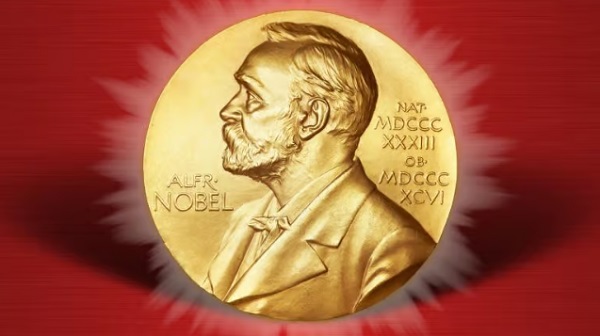
From the Brownstone Institute
By
Many news outlets reported the announcement of the Nobel Peace Prize on Friday by saying President Donald Trump had missed out (Washington Post, Yahoo, Hindustan Times, Huffington Post), not won (USA Today), fallen short (AP News), lost (Time), etc. There is even a meme doing the rounds about ‘Trump Wine.’ ‘Made from sour grapes,’ the label explains, ‘This is a full bodied and bitter vintage guaranteed to leave a nasty taste in your mouth for years.’

For the record, the prize was awarded to María Corina Machado for her courageous and sustained opposition to Venezuela’s ruling regime. Trump called to congratulate her. Given his own attacks on the Venezuelan president, his anger will be partly mollified, and he could even back her with practical support. He nonetheless attacked the prize committee, and the White House assailed it for putting politics before peace.
He could be in serious contention next year. If his Gaza peace plan is implemented and holds until next October, he should get it. That he is unlikely to do so is more a reflection on the award and less on Trump.
So He Won the Nobel Peace Prize. Meh!
Alfred Nobel’s will stipulates the prize should be awarded to the person who has contributed the most to promote ‘fraternity between nations…abolition or reduction of standing armies and…holding and promotion of peace congresses.’ Over the decades, this has expanded progressively to embrace human rights, political dissent, environmentalism, race, gender, and other social justice causes.
On these grounds, I would have thought the Covid resistance should have been a winner. The emphasis has shifted from outcomes and actual work to advocacy. In honouring President Barack Obama in 2009, the Nobel committee embarrassed itself, patronised him, and demeaned the prize. His biggest accomplishment was the choice of his predecessor as president: the prize was a one-finger send-off to President George W. Bush.
There have been other strange laureates, including those prone to wage war (Henry Kissinger, 1973), tainted through association with terrorism (Yasser Arafat, 1994), and contributions to fields beyond peace, such as planting millions of trees. Some laureates were subsequently discovered to have embellished their record, and others proved to be flawed champions of human rights who had won them the treasured accolade.
Conversely, Mahatma Gandhi did not get the prize, not for his contributions to the theory and practice of non-violence, nor for his role in toppling the British Raj as the curtain raiser to worldwide decolonisation. The sad reality is how little practical difference the prize has made to the causes it espoused. They bring baubles and honour to the laureates, but the prize has lost much of its lustre as far as results go.
Trump Was Not a Serious Contender
The nomination processes start in September and nominations close on 31 January. The five-member Norwegian Nobel committee scrutinises the list of candidates and whittles it down between February and October. The prize is announced on or close to 10 October, the date Alfred Nobel died, and the award ceremony is held in Oslo in early December.
The calendar rules out a newly elected president in his first year, with the risible exception of Obama. The period under review was 2024. Trump’s claims to have ended seven wars and boasts of ‘nobody’s ever done that’ are not taken seriously beyond the narrow circle of fervent devotees, sycophantic courtiers, and supplicant foreign leaders eager to ingratiate themselves with over-the-top flattery.
Trump Could Be in Serious Contention Next Year
Trump’s 20-point Gaza peace plan falls into three conceptual-cum-chronological parts: today, tomorrow, and the day after. At the time of writing, in a hinge moment in the two-year war, Israel has implemented a ceasefire in Gaza, Hamas has agreed to release Israeli hostages on 13-14 October, and Israel will release around 2,000 Palestinian prisoners (today’s agenda). So why are the ‘Ceasefire Now!’ mobs not out on the streets celebrating joyously instead of looking morose and discombobulated? Perhaps they’ve been robbed of the meaning of life?
The second part (tomorrow) requires Hamas demilitarisation, surrender, amnesty, no role in Gaza’s future governance, resumption of aid deliveries, Israeli military pullbacks, a temporary international stabilisation force, and a technocratic transitional administration. The third part, the agenda for the day after, calls for the deradicalisation of Gaza, its reconstruction and development, an international Peace Board to oversee implementation of the plan, governance reforms of the Palestinian Authority, and, over the horizon, Palestinian statehood.
There are too many potential pitfalls to rest easy on the prospects for success. Will Hamas commit military and political suicide? How can the call for democracy in Gaza and the West Bank be reconciled with Hamas as the most popular group among Palestinians? Can Israel’s fractious governing coalition survive?
Both Hamas and Israel have a long record of agreeing to demands under pressure but sabotaging their implementation at points of vulnerability. The broad Arab support could weaken as difficulties arise. The presence of the internationally toxic Tony Blair on the Peace Board could derail the project. Hamas has reportedly called on all factions to reject Blair’s involvement. Hamas official Basem Naim, while thanking Trump for his positive role in the peace deal, explained that ‘Palestinians, Arabs and Muslims and maybe a lot [of] people around the world still remember his [Blair’s] role in causing the killing of thousands or millions of innocent civilians in Afghanistan and Iraq.’
It would be a stupendous achievement for all the complicated moving parts to come together in stable equilibrium. What cannot and should not be denied is the breathtaking diplomatic coup already achieved. Only Trump could have pulled this off.
The very traits that are so offputting in one context helped him to get here: narcissism; bullying and impatience; bull in a china shop style of diplomacy; indifference to what others think; dislike of wars and love of real estate development; bottomless faith in his own vision, negotiating skills, and ability to read others; personal relationships with key players in the region; and credibility as both the ultimate guarantor of Israel’s security and preparedness to use force if obstructed. Israelis trust him; Hamas and Iran fear him.
The combined Israeli-US attacks to degrade Iran’s nuclear capability underlined the credibility of threats of force against recalcitrant opponents. Unilateral Israeli strikes on Hamas leaders in Qatar highlighted to uninvolved Arabs the very real dangers of continued escalation amidst the grim Israeli determination to rid themselves of Hamas once and for all.
Trump Is Likely to Be Overlooked
Russia has sometimes been the object of the Nobel Peace Prize. The mischievous President Vladimir Putin has suggested Trump may be too good for the prize. Trump’s disdain for and hostility to international institutions and assaults on the pillars of the liberal international order would have rubbed Norwegians, among the world’s strongest supporters of rules-based international governance, net zero, and foreign aid, the wrong way.
Brash and public lobbying for the prize, like calling the Norwegian prime minister, is counterproductive. The committee is fiercely independent. Nominees are advised against making the nomination public, let alone orchestrating an advocacy campaign. Yet, one laureate is believed to have mobilised his entire government for quiet lobbying behind the scenes, and another to have bad-mouthed a leading rival to friendly journalists.
Most crucially, given that Scandinavian character traits tip towards the opposite end of the scale, it’s hard to see the committee overlooking Trump’s loud flaws, vanity, braggadocio, and lack of grace and humility. Trump supporters discount his character traits and take his policies and results seriously. Haters cannot get over the flaws to seriously evaluate policies and outcomes. No prizes for guessing which group the Nobel committee is likely to belong to. As is currently fashionable to say when cancelling someone, Trump’s values do not align with those of the committee and the ideals of the prize.
Autism
Trump Blows Open Autism Debate
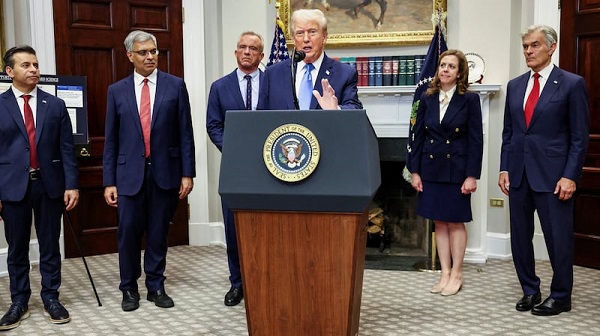
From the Brownstone Institute
By
Trump made sweeping claims that would have ended political careers in any other era. His health officials tried to narrow the edges, but the President ensured that the headlines would be his.
Autism has long been the untouchable subject in American politics. For decades, federal agencies tiptoed around it, steering research toward genetics while carefully avoiding controversial environmental or pharmaceutical questions.
That ended at the White House this week, when President Donald Trump tore through the taboo with a blunt and sometimes incendiary performance that left even his own health chiefs scrambling to keep pace.
Flanked by Health Secretary Robert F. Kennedy, Jr., NIH Director Jay Bhattacharya, FDA Commissioner Marty Makary, CMS Adminstrator Dr Mehmet Oz, and other senior officials, Trump declared autism a “horrible, horrible crisis” and recounted its rise in startling terms.
“Just a few decades ago, one in 10,000 children had autism…now it’s one in 31, but in some areas, it’s much worse than that, if you can believe it, one in 31 and…for boys, it’s one in 12 in California,” Trump said.
The President insisted the trend was “artificially induced,” adding: “You don’t go from one in 20,000 to one in 10,000 and then you go to 12, you know, there’s something artificial. They’re taking something.”
Trump’s Blunt Tylenol Warning
The headline moment came when Trump zeroed in on acetaminophen, the common painkiller sold as Tylenol — known as paracetamol in Australia.
While Kennedy and Makary described a cautious process of label changes and physician advisories, Trump dispensed with nuance.
“Don’t take Tylenol,” Trump said flatly. “Don’t take it unless it’s absolutely necessary…fight like hell not to take it.”
Kennedy laid out the evidence base, citing “clinical and laboratory studies that suggest a potential association between acetaminophen used during pregnancy and adverse neurodevelopmental outcomes, including later diagnosis for ADHD and autism.”
Makary reinforced the point with references to the Boston Birth Cohort, the Nurses’ Health Study, and a recent Harvard review, before adding: “To quote the dean of the Harvard School of Public Health, there is a causal relationship between prenatal acetaminophen use and neurodevelopmental disorders of ADHD and autism spectrum disorder. We cannot wait any longer.”
But where the officials spoke of “lowest effective dose” and “shortest possible duration,” Trump thundered over the top: “I just want to say it like it is, don’t take Tylenol. Don’t take it if you just can’t. I mean, it says, fight like hell not to take it.”
Vaccines Back on Center Stage
The President then pivoted to vaccines, reviving arguments that the medical establishment has long sought to bury. He blasted the practice of giving infants multiple injections at a single visit.
“They pump so much stuff into those beautiful little babies, it’s a disgrace…you get a vat of 80 different vaccines, I guess, 80 different blends, and they pump it in,” Trump said.
His solution was simple: “Go to the doctor four times instead of once, or five times instead of once…it can only help.”
On the measles, mumps, and rubella shot, Trump insisted: “The MMR, I think should be taken separately…when you mix them, there could be a problem. So there’s no downside in taking them separately.”
The moment was astonishing — echoing arguments that had once seen doctors like Andrew Wakefield excommunicated from medical circles.
It was the kind of line of questioning the establishment had spent decades trying to banish from mainstream debate.
Hep B Vaccine under Attack
Trump dismissed the rationale for giving the hepatitis B vaccine at birth.
“Hepatitis B is sexually transmitted. There’s no reason to give a baby that’s just born hepatitis B [vaccine]. So I would say, wait till the baby is 12 years old,” he said.
He made clear that he was “not a doctor,” stressing that he was simply offering his personal opinion. But the move could also be interpreted as Trump choosing to take the heat himself, to shield Kennedy’s HHS from what was sure to be an onslaught of criticism.
The timing was remarkable.
Only last week, the CDC’s Advisory Committee on Immunisation Practices (ACIP) had been preparing to vote on whether to delay the hepatitis B shot until “one month” of age — a modest proposal that mainstream outlets derided as “anti-vax extremism.”
By contrast, Trump told the nation to push the jab back 12 years. His sweeping denunciations made the supposedly radical ACIP vote look almost tame.
The irony was inescapable — the same media voices who had painted Kennedy’s reshaped ACIP as reckless now faced a President willing to say far more than the panel itself dared.
A New Treatment and Big Research Push
The administration also unveiled what it deemed a breakthrough: FDA recognition of prescription leucovorin, a folate-based therapy, as a treatment for some autistic children.
Makary explained: “It may also be due to an autoimmune reaction to a folate receptor on the brain not allowing that important vitamin to get into the brain cells…one study found that with kids with autism and chronic folate deficiency, two-thirds of kids with autism symptoms had improvement and some marked improvement.”
Dr Oz confirmed Medicaid and CHIP (the Children’s Health Insurance Program, which provides low-cost health coverage to children in families that earn too much to qualify for Medicaid) would cover the treatment.
“Over half of American children are covered by Medicaid and CHIP…upon this label change…state Medicaid programs will cover prescription leucovorin around the country, it’s yours,” said Oz.
Bhattacharya announced $50 million in new NIH grants under the “Autism Data Science Initiative.”
He explained that 13 projects would be funded using “exposomics” — the study of how environmental exposures like diet, chemicals, and infections interact with our biology — alongside advanced causal inference methods.
“For too long, it’s been taboo to ask some questions for fear the scientific work might reveal a politically incorrect answer,” Bhattacharya said. “Because of this restricted focus in scientific investigations, the answers for families have been similarly restricted.”
Mothers’ Voices
The press conference also featured raw testimony from parents.
Amanda, mother of a profoundly autistic five-year-old, told Trump: “Unless you’ve lived with profound autism, you have no idea…it’s a very hopeless feeling. It’s very isolating. Being a parent with a profound autistic child, even just taking them over to your friend’s house is something we just don’t do.”
Jackie, mother of 11-year-old Eddie, said: “I’ve been praying for this day for nine years, and I’m so thankful to God for bringing the administration into our lives…I never thought we would have an administration that was courageous enough to look into things that no prior administration had.”
Their stories underscored what Kennedy said at the announcement about “believing women.” Here were mothers speaking directly about their lived reality, demanding that uncomfortable conversations could no longer be avoided.
Clashes with the Press Corps
Reporters pressed Trump on the backlash from medical groups.
Asked about the American College of Obstetricians and Gynecologists (ACOG) declaring acetaminophen safe in pregnancy, Trump shot back, “That’s the establishment. They’re funded by lots of different groups. And you know what? Maybe they’re right. I don’t think they are, because I don’t think the facts bear it out at all.”
When one journalist raised the argument that rising diagnoses reflected better recognition, Kennedy bristled,
“That’s one of the canards that has been promoted by the industry for many years,” he said. “It’s just common sense, because you’re only seeing this in people who are under 50 years of age. If it were better recognition or diagnosis, you’d see it in the seventy-year-old men. I’ve never seen this happening in people my age.”
Another reporter then asked Trump, “Should the establishment media show at least some openness to trying to figure out what the causes are?”
“I wish they would. Yeah, why are they so close-minded?” Trump replied. “It’s not only the media, in all fairness, it’s some people, when you talk about vaccines, it’s crazy…I don’t care about being attacked.”
Breaking the Spell
For years, autism policy has been shaped by caution, consensus, and deference to orthodox positions. That spell was broken at today’s press conference.
The dynamic was striking. Kennedy, Makary, Bhattacharya, and Oz leaned on scientific papers, review processes, and cautious advisories. Trump, by contrast, brushed it all aside, hammering his message home through repetition and personal anecdotes.
Trump made sweeping claims that would have ended political careers in any other era. His health officials tried to narrow the edges, but the President ensured that the headlines would be his.
“This will be as important as any single thing I’ve done,” Trump declared. “We’re going to save a lot of children from a tough life, really tough life. We’re going to save a lot of parents from a tough life.”
Whatever the science ultimately shows, the politics of autism in America will never be the same.
Republished from the author’s Substack
-

 Business2 days ago
Business2 days agoTruckers see pay surge as ICE sweeps illegal drivers off U.S. highways
-

 International2 days ago
International2 days agoHamas releases all living hostages under Trump peace plan
-
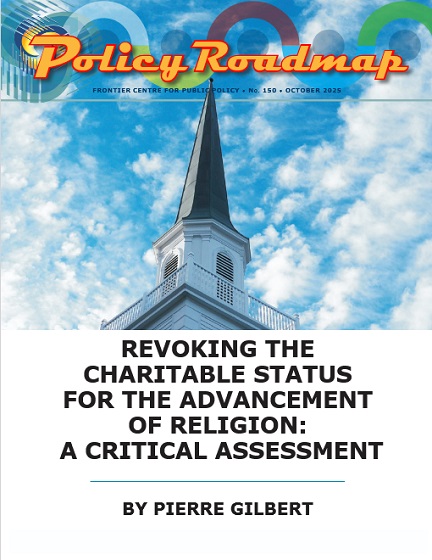
 Business18 hours ago
Business18 hours agoFinance Committee Recommendation To Revoke Charitable Status For Religion Short Sighted And Destructive
-

 Alberta18 hours ago
Alberta18 hours agoOil Sands are the Costco of world energy – dependable and you know exactly where to find it
-

 Brownstone Institute2 days ago
Brownstone Institute2 days agoTrump Covets the Nobel Peace Prize
-

 Health16 hours ago
Health16 hours agoColorado gave over 500 people assisted suicide drugs solely for eating disorders in 2024
-

 Business2 days ago
Business2 days agoNetherlands Seizes Chinese-Owned Chipmaker in Unprecedented Security Move
-

 Energy18 hours ago
Energy18 hours agoIndigenous Communities Support Pipelines, Why No One Talks About That










